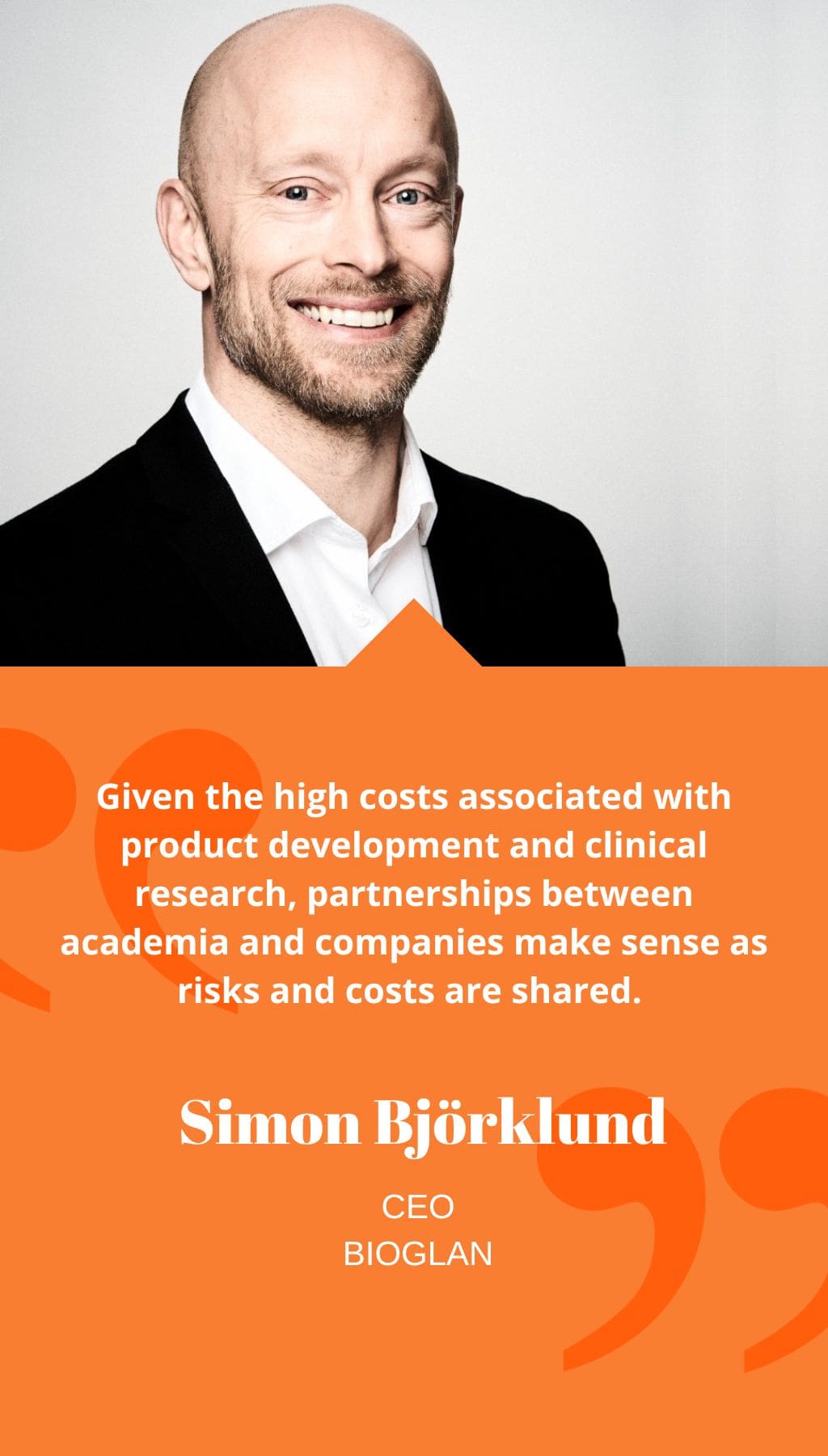
- Sweden | 14 June 2020

Bioglan operates as both a CDMO and has its own product portfolio. Could you elaborate on the company’s business model?
Bioglan has two distinct business units. One focuses on the development and manufacturing of pharmaceutical and medical device products for other companies, functioning as a contract development and manufacturing organization (CDMO). The CDMO segment is involved early in the value chain, assisting clients in formulating efficient and aesthetically appealing products that can be scaled up for commercial-scale manufacturing. Bioglan’s open and honest approach has earned it a strong reputation among customers. In addition to the CDMO operations, Bioglan also has its own product portfolio. The company’s manufacturing plant is flexible, capable of accommodating various batch sizes and filling jars and tubes of different kinds in compliance with GMP and ISO13485 standards.
Bioglan has experienced rapid growth in recent years and now employs over 100 people. What would you identify as the company’s main strength and differentiating factor?
Bioglan’s main strength lies in its commitment to listening to the needs and requirements of its customers and providing tailored solutions. The company not only offers manufacturing services but also assists clients who may have limited experience in formulation, clinical and commercial manufacturing, and regulatory compliance. Bioglan guides these clients in the right direction and helps them make early formulation changes to avoid complications when scaling up production. Every customer, regardless of size, is a priority for Bioglan, fostering long-term relationships and earning positive word-of-mouth recommendations.
Collaboration and partnerships are prevalent in the CMO space. What opportunities do you see for Bioglan in terms of collaboration and partnerships?
Bioglan engages in partnerships with both clients and universities. Collaborations between academia and the private sector are particularly intriguing. Sweden, known for its high innovation rate, offers an environment where academic ideas can be utilized alongside companies to facilitate product development. Bioglan actively participates in these collaborations with other pharmaceutical companies, fostering an atmosphere that encourages such movements. Given the high costs associated with product development and clinical research, partnerships between academia and companies make sense as risks and costs are shared. On an international level, Bioglan has ongoing co-development projects with Reig Jofre, a company with specialized sites in Spain focusing on freeze-dried products and antibiotics derived from penicillin and cephalosporin. Bioglan also partners with local, European, and international companies, shipping its products worldwide through Reig Jofre’s direct sales network in multiple countries and a network of over 130 commercial partners.
With a strong manufacturing and R&D heritage in Sweden spanning over 30 years, how critical is it for Bioglan to be based in Sweden?
From a strategic perspective, Bioglan benefits from its location in the Skåne region of Sweden. The region boasts a significant presence of pharmaceutical and Medtech companies, resulting in a concentrated pool of life science expertise. Sweden is renowned for its high level of manufacturing quality and collaboration, contributing to the country’s strong reputation internationally. Products manufactured in Northern Europe, such as in Sweden, often enjoy a favorable reputation and can command premium prices in the market. Bioglan’s customers trust the company, and it is essential to communicate the trustworthiness and collaborative, innovative environment that Sweden offers.
Are there any plans for expansion at Bioglan’s current site in Malmö?
Over the past four years, Bioglan has experienced significant growth, transitioning from operating one shift per day to now working three shifts per day continuously for the last three years. This expansion was driven by new clients, the introduction of new products, and growth with long-standing existing customers. Currently, Bioglan has three production lines, but due to its continued growth, the company has decided to install a fourth line at an investment of EUR 1 million. The new line will be ready for operation by the end of this year and will be dedicated to manufacturing a completely new product. Notably, one of Bioglan’s customers is shifting their manufacturing operations from a larger UK contract manufacturer to Bioglan’s facility in Malmö, showcasing the trust and collaborative nature that attracts customers to the company.
What are your goals for Bioglan in the next three to five years?
Bioglan aims to further develop its contract business, which has been growing steadily in Sweden for several years. Certain product lines already run 24 hours a day, five days a week, while other lines have untapped potential to accommodate new products. The company aspires to see more products developed and commercialized either by Bioglan or in collaboration with partners. While Bioglan has a solid market presence through Reig Jofre for commercialization in Europe, it seeks distribution partners in other parts of the world. Bioglan specializes in semi-solid formulations within indications such as wound care, dermatitis, psoriasis, and pain treatment. The company looks forward to expanding with current customers and welcoming new ones. Ultimately, Bioglan’s aim is to double its revenue within the next five years, reflecting its growth ambitions.














